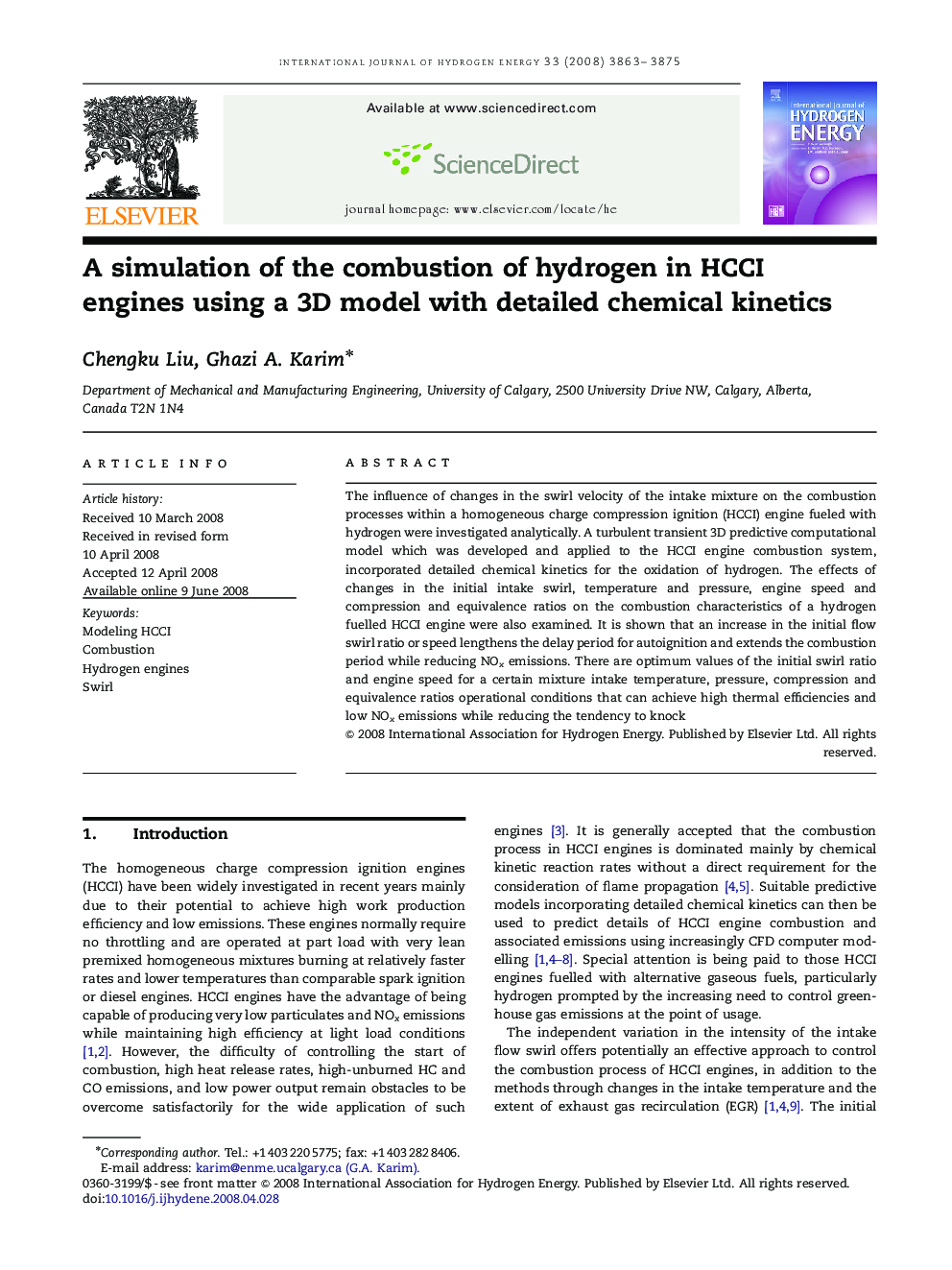| Article ID | Journal | Published Year | Pages | File Type |
|---|---|---|---|---|
| 1283675 | International Journal of Hydrogen Energy | 2008 | 13 Pages |
The influence of changes in the swirl velocity of the intake mixture on the combustion processes within a homogeneous charge compression ignition (HCCI) engine fueled with hydrogen were investigated analytically. A turbulent transient 3D predictive computational model which was developed and applied to the HCCI engine combustion system, incorporated detailed chemical kinetics for the oxidation of hydrogen. The effects of changes in the initial intake swirl, temperature and pressure, engine speed and compression and equivalence ratios on the combustion characteristics of a hydrogen fuelled HCCI engine were also examined. It is shown that an increase in the initial flow swirl ratio or speed lengthens the delay period for autoignition and extends the combustion period while reducing NOx emissions. There are optimum values of the initial swirl ratio and engine speed for a certain mixture intake temperature, pressure, compression and equivalence ratios operational conditions that can achieve high thermal efficiencies and low NOx emissions while reducing the tendency to knock
